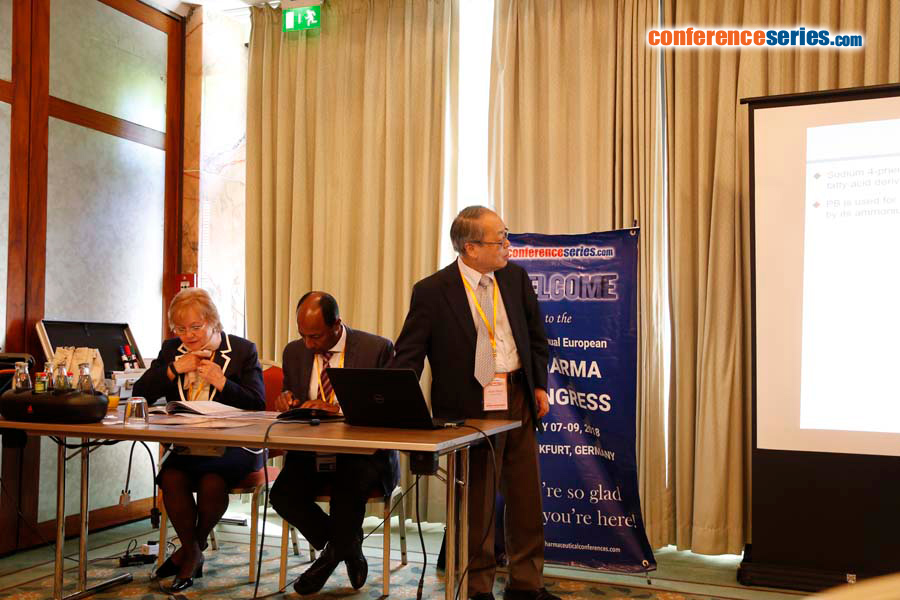
Masaki Otagiri
Sojo University, Japan
Title: Study of structural-chemistry of sodium 4-phenylbutyrate on its binding to serum albumin
Biography
Biography: Masaki Otagiri
Abstract
Sodium 4-phenylbutyrate (PB) is phenyl-substituted fatty acid derivative that is clinically used for the treatment of urea cycle disorders by its ammonium scavenging activity. PB has also other pharmacological activities such as an inhibitor of endoplasmic reticulum stress and histone deacetylases. However, the binding of PB to plasma protein is not fully understood. Thus, we investigate the binding of PB to plasma protein in detail. Binding experiments showed that PB mainly binds to human serum albumin (HSA) with a single high affinity site, site 2. Moreover, the hydrophobic and electrostatic interactions play an important role on the binding based on structure-activity relationship and thermodynamic analysis. In addition, Tyr411 and Arg410 were involved in the binding of PB to site 2, from the binding experiments using chemically modified HSAs and mutant HSAs. These findings were confirmed by X-ray crystallographic analysis: the carboxylate group of PB hydrogen-bonded to Arg410, Tyr411 and Ser489, and the alkyl chain, including the phenyl group of PB, occupies the hydrophobic cavity of drug site 2. Next, we examined binding properties of PB to mammalian serum albumin. PB was also found to interact with one high affinity site, which corresponds to site 2 of HSA and several number of low affinity binding sites in all albumins. The affinities of PB to human and bovine albumins were higher than those to rabbit and rat albumin, and that to rabbit was the lowest. Binding and molecular docking studies using structurally related compounds of PB suggested that species differences in the affinity are attributed to differences in the structural feature of PB-binding sites on albumins (e.g. charge distribution, hydrophobicity, shape, or size). The findings presented herewith will be useful for understanding the pharmacokinetics and the pharmacological effects of PB.
Speaker Presentations
Speaker PPTs Click Here


